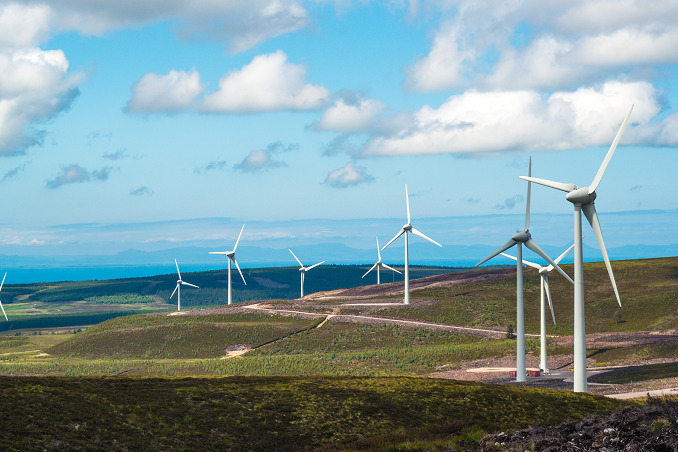UK law firm TLT and real estate consultancy Gerald Eve have stated that the UK’s net zero prospects are currently at risk due to the ongoing fight over land use.
Detailed within its latest report, The land use challenge: Creating a system to deliver net zero, the ongoing struggle between different sectors for land use have led to one of the biggest challenges to Britain’s efforts to achieve net zero.
Many different sectors are competing for land for different purposes including renewable generation and green infrastructure, industry, affordable housing, food security and biodiversity. This has caused further issues related to constraints on the grid – an obstacle on the path to net zero.
“A period of monumental transformation lies ahead for the UK if we are to reach net zero by 2050. A comprehensive overhaul of the existing grid infrastructure is needed to support increased renewable energy generation, distribution, storage, and stability, and complementary technologies such as hydrogen electrolysis and carbon capture. Maximising land use is a critical part of this, to support the creation of a system that can deliver net zero,” said Maria Connolly, head of future energy and real estate at TLT.
“Change is happening but not at the pace we need it to be. We cannot stand by and wait for a stable market and the ideal policy and regulatory landscape – we need to come together as an industry and be the voice for change. Our report is both timely and important, bringing together some of the most influential names in the renewable energy market to map out the barriers to change and begin to identify solutions and priorities for actionable reform.”
We have partnered with @TLT_LLP and contributors to look at where industry experts unpack the complexities, challenges and opportunities land use stakeholders face as the UK undergoes the transition to net zero.
— Gerald Eve (@GeraldEveLLP) March 15, 2023
To read the full report download here: https://t.co/TwAb8qPA0k pic.twitter.com/kb56FJUuJp
The report also made various interesting findings that could bolster the nation’s net zero prospects. One of which states that investment in updating existing grid infrastructure and more grid balancing projects will be critical for decarbonisation. The current grid structure will also need a complete overhaul to support the levels of renewable generation necessary to achieve net zero.
This is a widely recognised assumption, and several measures are being explored to try and transition the current grid system to an update variant that can withhold much of the new technologies requiring access.
The current grid, which was built in the early 20th century, was not initially constructed to withstand multiple connections across Britain. As a result, a major update will be required to enable the decarbonisation of the UK.
The report also distinguishes that clear regulatory and policy direction is needed to incentivise grid infrastructure investment. For this, local and central government are key decision-makers in driving opportunity but private sector funders and investors are also crucial to accelerating change.
Increased investment in the grid should be encouraged by updates to local and national planning policy. A more robust and flexible national planning policy and clarity around the priority given to different land uses will allow local authorities to make land use allocations which best benefit local communities and work towards net zero.
“It is crystal clear that the UK needs to rethink how it optimises land use if it is to meet the government’s 2050 net zero target. However, determining exactly which projects should be prioritised in an increasingly competitive landscape presents an enormous challenge to the industry,” said John Howells, partner, industrial and infrastructure at Gerald Eve.
“Several key areas of fundamental change are highlighted in this report where a real acceleration is needed on the UK’s journey to net zero. The time is now for the industry to come together to drive overarching regulatory and policy change, inspire market confidence in renewable generation and ensure the ability to meet increasing consumer demand.”






